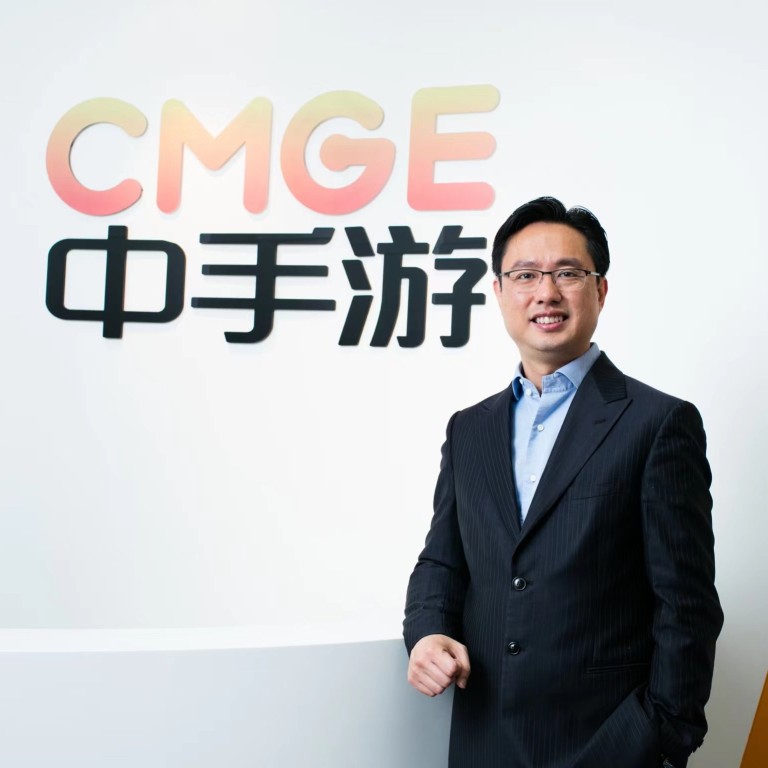
China’s video gaming control to get as strict as regulation of films and TV shows, game publisher founder says
- CMGE vice-chairman Hendrick Sin says China aims to carefully regulate video games because they are a channel for expressing ideology
- The Hong Kong-listed and Bilibili-backed company saw its share price tumble from its peak this year after Beijing kicked off its latest campaign on the gaming industry
China’s tightened regulation of video gaming content is going to be as harsh as its control of films and television shows, according to an executive at a major Chinese game company.
Hendrick Sin, executive director and vice-chairman of Hong Kong-listed CMGE Technology, told the South China Morning Post on Wednesday that Beijing’s message to gaming companies was clear: the list of “dos and don’ts” is about to get longer.
“That’s because video games are also an expression of ideology, the same as films and TV shows,” Sin said.
Beijing’s strict controls on the import of foreign titles makes the Chinese market hard to crack for Hollywood studios and streaming platforms such as Netflix and HBO, both unavailable in China.
Why does the Chinese government hate video games?
Founded by Sin and his business partner Xiao Jian in 2009, Shenzhen and Hong Kong-based CMGE became the first Chinese mobile gaming company to list on the Nasdaq when it went public in 2012. The video game powerhouse went private in 2015 before relisting in Hong Kong in 2019.
The company, which controls a plethora of well-known game franchises such as Sword and Fairy, counted tech giants Tencent Holdings and Bilibili as cornerstone investors for its Hong Kong IPO. In April this year, Bilibili, which currently has a seat the CMGE’s board, agreed to invest an additional 851.1 million yuan (US$109.6 million) in the company, raising its stake to 7.2 per cent.
Last year, CMGE raked in more than 3.8 billion yuan in revenues and 800 million yuan in profit, sending its shares to a record high in July this year.
In response to the changing regulatory landscape, CMGE, which has built one of the biggest war chests of gaming intellectual properties (IPs) in China, has been consciously shifting from acquiring foreign titles to Chinese ones, said Sin.
“You will find a dip in our number of new Japanese, European and American IPs in recent years,” said Sin. “This is not a coincidence. You see that in recent years our focus has shifted towards Chinese IPs. This has something to do with the change in China’s policies.”
Roblox, Epic Games’ setbacks in China indicate a splintered metaverse
Sin said that a more regulated landscape, along with fewer gaming licences, will benefit big incumbent players and disadvantage smaller studios.
But a clear list of what type of game content is allowed or not allowed can provide better clarity for everyone, Sin said.
“A lot of these dos and don’ts … are primarily a matter of Beijing’s values,” Sin said. “If you don’t cross the red lines, you won’t run into problems.”
Beijing knows video games better than most think, says games store founder
Sin said he expects that Chinese regulators will monitor games in detail, such as the design of “loot boxes”, a common game feature that lets users pay real or virtual money to participate in a blind draw for in-game commodities. The feature has long frustrated regulators around the world for its close resemblance to gambling.
China already requires game companies to disclose the odds of getting each reward item. Now regulators are setting up even more detailed rules, according to Sin.
“They specifically tell you that an item has to appear after opening a loot box about 20 to 30 times,” said Sin.

